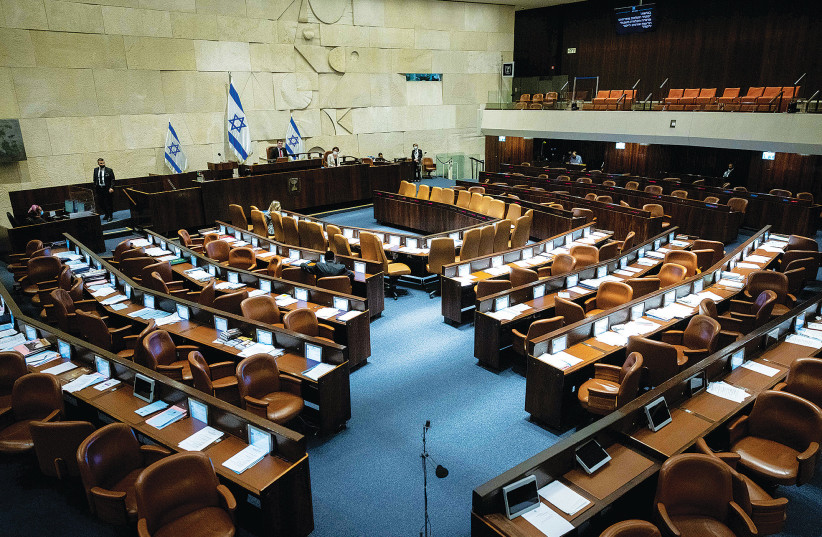Gov’t to request five-month delay on haredi conscription bill – report
The government will request the High Court of Justice to delay the expiration date of Israel’s current IDF conscription law by five months, from July 31 to December, in order to give the coalition time to debate and formulate a new version of the bill that will be acceptable to the coalition’s haredi parties, Channel 12 reported on Monday.
The prime minister’s spokesperson did not answer a request by the Jerusalem Post to verify the report.
Haredi party leaders clarified to Prime Minister Benjamin Netanyahu in recent weeks that despite the sensitivity of the issue, they are insisting on the fulfillment of a coalition agreement clause to pass such a bill by the time Israel’s budget passes on May 29.
However, with the budget expected to take up all of the Knesset’s time in May, this deadline is becoming increasingly unrealistic. Reports last week indicated that out of the three haredi factions in the coalition – Shas, Degel Hatorah and Agudat Yisrael (the latter two which together make up the United Torah Judaism party but operate independently in the Knesset), only the Hassidic Agudat Yisrael was insisting that the conscription bill indeed pass by the time the budget passes.
Agudat Yisrael has four Knesset members, and therefore the coalition cannot pass the budget without its votes. A delay in the expiration date of the existing bill means that the party will lose this leverage – but also give the coalition a longer period to come to an agreement on the contentious issue.
What is the current law?
Israel’s existing National Service Law, which was initially passed in 2014, sets allotments of haredi draftees to the IDF per year and sanctions yeshivot that do not meet these allotments. However, the High Court of Justice deemed the bill unconstitutional in September 2017, since the exemption it gave was ruled to be too sweeping and thus violated the notion of equality. The bill’s expiry date was repeatedly delayed and is currently set to expire on July 31.
 THE KNESSET will return to session next week amid the temporary freeze in the judicial reform legislation. (credit: YONATAN SINDEL/FLASH90)
THE KNESSET will return to session next week amid the temporary freeze in the judicial reform legislation. (credit: YONATAN SINDEL/FLASH90)Netanyahu, Finance Minister Bezalel Smotrich and other coalition leaders met a number of times in recent weeks in order to discuss a new format for the law. Smotrich proposed a new policy of choosing equality in the “economic burden” over the “military burden” by lowering the exemption age for haredi men from 26 to between 21-23, thus enabling them to join the workforce earlier while minimizing the inequality to IDF soldiers by shortening the length of service for those who do serve and providing benefits.
The coalition agreement between the Likud and United Torah Judaism stipulated that in addition to passing an updated version of the bill by the time the budget passes, the coalition will also pass a Basic Law: Torah Study, which will determine that the study of Torah is a fundamental value. UTJ believes that such a basic law would deter the High Court from intervening as Torah study would be deemed a constitutional right.
The issue also connects to the government’s controversial judicial reforms. UTJ insisted during the coalition negotiations and afterward that the coalition pass an Override Clause which would enable the coalition to re-legislate laws that the High Court strikes down. The party reasoned that this would serve as another layer of defense, in case a Basic Law: Torah Study is not enough.





Comments are closed.